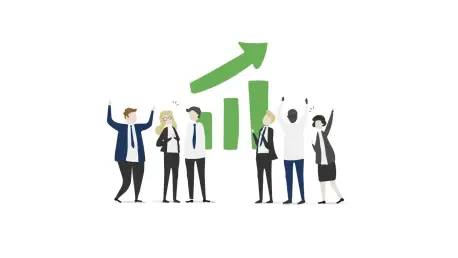I’m thrilled to sit down with Sofia Khaira, a renowned specialist in diversity, equity, and inclusion, who has dedicated her career to transforming talent management and development practices. As an HR expert, Sofia has been instrumental in driving initiatives that create inclusive and equitable workplaces. Today, we’ll dive into her insights on a groundbreaking collaboration between a leading global organization and an innovative AI-driven talent intelligence platform. Our conversation will explore how this partnership is revolutionizing workforce development, enhancing career mobility, and aligning skills-building with future business needs through a blend of human expertise and cutting-edge technology.
How did the idea of partnering with an AI-driven talent intelligence platform come about for workforce development?
The decision to partner with an AI-driven platform stemmed from a need to address evolving workforce challenges in a rapidly changing global economy. We recognized that traditional approaches to talent management weren’t keeping pace with the demand for agility and innovation. Our goal was to empower employees with tools for career growth while aligning their skills with long-term business objectives. After exploring various solutions, we found a platform that offered a unique blend of data-driven insights and human-centric design, making it the ideal fit for our vision of a future-ready workforce.
Can you walk us through the concept of a Talent Design framework and its impact on career architecture?
Absolutely. The Talent Design framework is a strategic approach that integrates advanced AI capabilities with human expertise to create a skills-based career architecture. It allows us to map out roles, benchmark them against global market standards, and identify the skills needed for future success. For employees, this means clearer pathways for growth and development. For the organization, it provides actionable insights to ensure our talent strategy aligns with industry trends and business goals, ultimately fostering a more adaptable and skilled workforce.
In what ways does this collaboration enhance career mobility for employees within the organization?
This partnership significantly boosts career mobility by offering tools that help employees discover internal opportunities tailored to their skills and aspirations. The platform connects individuals with roles across the organization, breaking down silos and encouraging lateral and upward movement. Employees have responded positively, appreciating the visibility into potential career paths and the support to pursue them. It’s created a culture where growth is not just encouraged but actively facilitated through personalized recommendations and resources.
How does personalized learning and upskilling play a role in preparing employees for the future through this initiative?
Personalized learning is at the heart of this collaboration. The platform provides curated recommendations for upskilling, tailored to each employee’s current role, career goals, and the organization’s future needs. For instance, an employee might receive suggestions for courses or certifications that build critical skills like data analysis or AI literacy. These opportunities are designed to align with broader business priorities, ensuring that as our workforce grows, they’re equipped to tackle emerging challenges and drive innovation.
What does the concept of ‘talent intelligence at scale’ mean for an organization, and why does it matter?
Talent intelligence at scale refers to the ability to harness vast amounts of data to make informed decisions about workforce development on a large scale. It’s about understanding the skills, potential, and aspirations of our entire workforce and aligning them with long-term business strategies. This matters because it transforms talent management from a reactive process to a proactive one. Early insights from this approach have shown improved employee engagement and better alignment between individual growth and organizational goals, which is a game-changer for sustainability and competitiveness.
With existing programs focused on tech education and AI training, how does this new platform complement those efforts?
Our existing programs, which focus on tech education and mandatory AI training for all employees, have laid a strong foundation for digital literacy. This new platform builds on that by addressing specific gaps, such as personalized career pathing and scalable talent insights. It integrates seamlessly with our current initiatives, enhancing them with tailored learning experiences and data-driven strategies. Together, they create a comprehensive ecosystem that prepares our workforce for both current and future challenges in a cohesive way.
There’s a strong emphasis on supporting employees during transformative change. How are you ensuring they feel supported in this process?
Supporting employees during transformative change is a top priority. We’re ensuring they feel valued by providing transparent communication about how these tools and opportunities benefit them. We’ve also created feedback channels to hear their concerns and experiences directly. Many employees have shared how empowering it is to have access to career growth resources and skill-building programs tailored to their needs. By combining technology with a human touch, we’re fostering an environment where change feels like an opportunity, not a challenge.
How do you strike a balance between human insight and AI capabilities in this partnership?
Striking a balance between human insight and AI is crucial. While AI provides powerful data analysis and personalized recommendations, human expertise ensures that these insights are applied with empathy and context. For example, when identifying career paths for employees, the AI might suggest roles based on skills data, but our HR teams step in to consider personal aspirations and cultural fit. This synergy ensures that decisions aren’t purely algorithmic but are grounded in the nuanced understanding of our workforce’s needs and potential.
What is your forecast for the future of workforce development with AI-driven solutions?
I believe AI-driven solutions will become a cornerstone of workforce development in the coming years. They’ll continue to evolve, offering even deeper personalization and predictive insights to anticipate skill needs before they arise. However, the human element will remain irreplaceable—AI will augment, not replace, the empathy and strategic thinking that HR professionals bring. My forecast is that organizations embracing this balance will lead the way in creating adaptable, engaged, and future-ready workforces, setting a new standard for talent management across industries.









